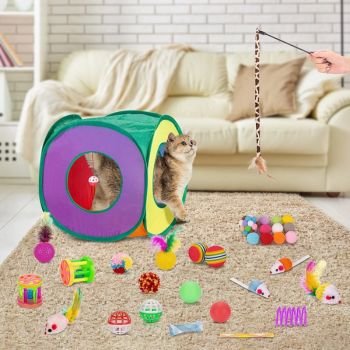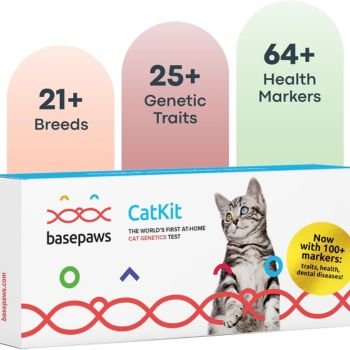In the realm of feline elegance, the Siberian cat breed stands tall as a symbol of strength, beauty, and unrivaled charm. Originating from the cold landscapes of Russia, these majestic cats have not only adapted to extreme climates but have also become beloved companions worldwide. Join us on a journey to explore the allure of the Siberian cat breed, from its historical roots to the unique characteristics that make it a distinctive and endearing feline friend.
Origin and History: A Tale of Survival and Grace
The Siberian cat’s roots trace back to the dense forests of Siberia, where the harsh climate and challenging terrain shaped this breed into a resilient and majestic companion. Siberians are believed to have existed for centuries, with their natural adaptation to cold environments earning them a place of honor among Russian royalty and households.
Characteristics: The Powerful Elegance of Siberian Cats
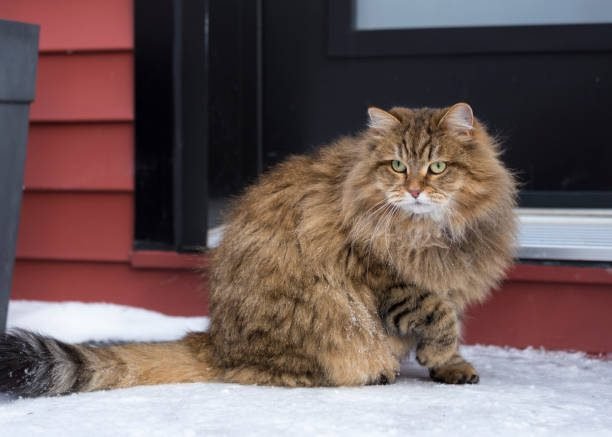
Shape and Size: Sturdy and Regal
Siberian cats are known for their sturdy and muscular build, reflecting their heritage of survival in harsh conditions. Males typically weigh between 15-20 pounds, while females are slightly smaller, ranging from 10-15 pounds. Their regal appearance is complemented by a well-proportioned body and a thick, bushy tail.
Coat: A Luxurious Mane of Fluff
The Siberian cat’s coat is a marvel of nature, designed to withstand frigid temperatures. It consists of a dense, water-resistant undercoat and a longer, silky outer coat. The coat varies in length, with a luxurious mane of fur around the neck, resembling a regal collar. Siberians come in various colors and patterns, adding to the visual splendor of the breed.
Eyes: Windows to the Siberian Soul
Siberian cats boast large, expressive eyes that captivate with their round shape and a myriad of colors. From deep blues to vibrant greens and ambers, the eyes of a Siberian cat convey intelligence, curiosity, and a touch of mystery. The eye color can vary and may change with age.
Ears: Tufted and Alert
The ears of Siberian cats are medium to large in size, adorned with tufts of hair on the tips. Their alert and upright posture contribute to the breed’s vigilant and curious nature. The tufted ears add a delightful touch to the overall appearance, enhancing their majestic aura.
Voice: Melodious and Expressive
Siberian cats are known for their melodious voices, often described as a soft and sweet trill. While not excessively vocal, they communicate with a charming combination of purrs, chirps, and gentle meows. Their expressive vocalizations add to the engaging personality of the breed.
Behavior: The Siberian Charm Unveiled
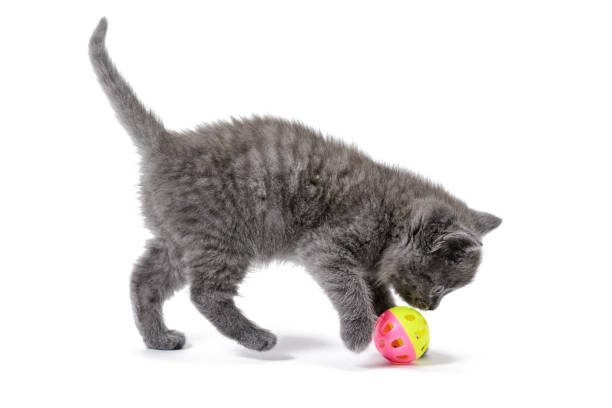
Temperament: Gentle Giants
Siberian cats are characterized by their gentle and amiable temperament. Despite their large size, they are known as “gentle giants” and are often described as affectionate and sociable. Their loving nature makes them ideal companions for families and individuals alike.
Social Nature: Feline Companionship at its Best
Siberians thrive on human interaction and form strong bonds with their families. They enjoy being part of household activities and often follow their human companions from room to room. Their social nature extends to getting along well with other pets, making them versatile additions to multi-pet households.
Playfulness: Agile and Energetic
Despite their regal appearance, Siberians have a playful and energetic side. They enjoy interactive play, especially games that challenge their intelligence. Providing a variety of toys and engaging activities helps satisfy their need for mental and physical stimulation.
Adaptability: From Siberia to Your Home
Siberian cats adapt well to various living environments. Whether you reside in a spacious home or a cozy apartment, these adaptable felines find contentment in the company of their human companions. Their easygoing nature makes them well-suited for different lifestyles.
Read more: 5 BEST INDOOR CAT HOUSES FOR YOUR FELINE FRIEND
Nutrition: Nourishing the Siberian Strength
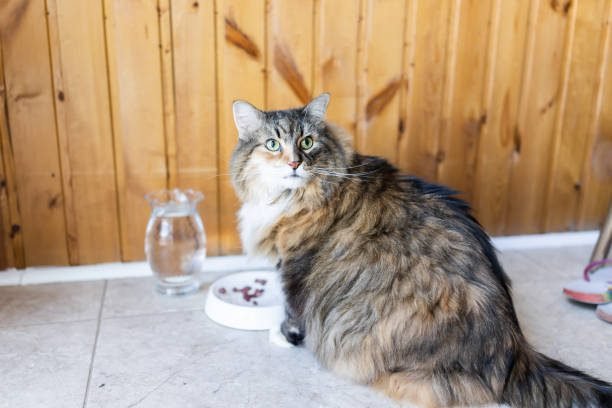
Tailoring Diet to Siberian Cats
To support the Siberian cat’s robust health, a balanced and nutritious diet is essential. High-quality cat food, formulated to meet their specific needs, provides the necessary nutrients for their well-being.
Dietary Preferences and Tips
Siberians may have individual preferences when it comes to food. Experimenting with different textures and flavors helps cater to their discerning palates. Regular veterinary check-ups assist in tailoring their diet to their unique nutritional requirements.
Favorite Foods: Delighting Siberian Tastes
Siberian cats may have particular tastes, and some may prefer wet food over dry kibble. Offering a mix of both ensures they receive a well-rounded and satisfying diet. Consult with your veterinarian to determine the ideal nutritional regimen for your Siberian cat.
Specific Nutritional Regimen
Consider a diet rich in animal proteins to mimic their natural diet. Siberians benefit from high-quality cat food that lists meat as the primary ingredient and is free from unnecessary fillers. Personalized nutritional advice from your veterinarian ensures the health and vitality of your Siberian cat.
Health Care: Preserving Siberian Vigor
Common Health Issues
Siberian cats are generally healthy, but like all breeds, they may be prone to certain conditions. Regular veterinary check-ups aid in early detection and prevention of potential health issues, ensuring a long and vibrant life.
Preventive Measures
Maintaining the health of your Siberian cat involves preventive measures such as vaccinations, dental care, and regular exercise. Monitoring their weight and providing a stimulating environment contribute to their overall well-being.
Grooming: Maintaining the Siberian Splendor
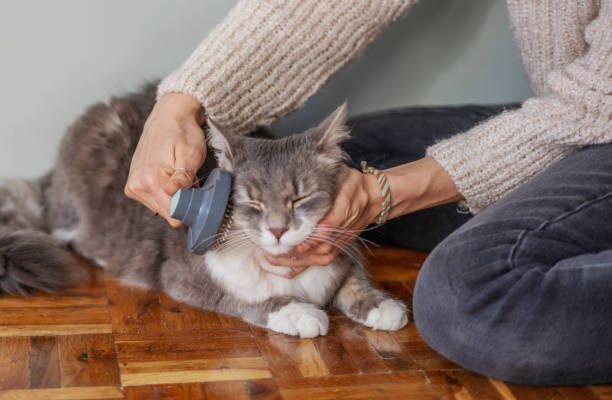
Siberians and Grooming
Despite their thick coat, Siberian cats are surprisingly low-maintenance in the grooming department. Regular brushing helps prevent matting and reduces shedding, keeping their coat in optimal condition.
Tips for a Well-Groomed Siberian
Brush your Siberian cat at least twice a week to remove loose hair and prevent matting. Pay extra attention to the dense undercoat, especially during seasonal shedding. Regular nail trims and dental care complete their grooming routine.
Training: Building Trust and Understanding
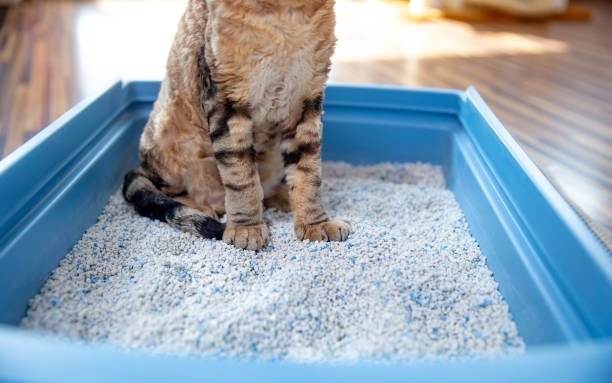
Training Siberian Cats
Siberian cats are intelligent and can be trained using positive reinforcement techniques. Basic commands, interactive play, and puzzle toys provide mental stimulation and strengthen the bond between you and your feline companion.
Litter Box Training: Effortless Integration
Siberians generally adapt easily to litter box training. Ensure the litter box is in a quiet, accessible location, and use a litter type that suits their preferences. Positive reinforcement encourages good litter box habits.
Choosing a Siberian as Your Companion: A Bond of Strength and Affection
In the tapestry of feline companionship, choosing a Siberian cat is synonymous with embracing strength, beauty, and unwavering affection. Here are compelling reasons why Siberians make exceptional companions:
Robust Affection:
Siberians are known for their affectionate nature, forming strong bonds with their human companions. Their gentle demeanor and loving disposition create a profound sense of companionship.
Versatile Compatibility:
Whether you live in a bustling household or a serene environment, Siberians adapt effortlessly. Their social nature and adaptability make them compatible with various lifestyles, from singles to families.
Playful Companionship:
Siberians bring a playful spirit to their companionship. Their agility and love for interactive play create joyful moments, enhancing the bond between you and your feline friend.
Regal Elegance:
The majestic appearance of Siberians, with their luxurious coat and expressive eyes, adds a touch of regal elegance to any home. Their presence is not just that of a pet but of a noble companion.
Loyal Devotion:
Siberians are loyal and devoted to their human companions. Their steadfast companionship and gentle nature make them cherished members of the family.
Conclusion: A Symphony of Strength and Grace
In conclusion, the Siberian cat breed is a symphony of strength, grace, and unwavering charm. From their Siberian roots to the majestic characteristics that define them, Siberians stand as a testament to the enduring bond between humans and felines. Choosing a Siberian as your companion is not just welcoming a pet into your home; it’s embracing a powerful and affectionate presence that enriches the tapestry of your life.
>>> The Enigmatic Elegance of Birman Cat Breed
FAQs About Siberian Cats
Are Siberian cats good for apartment living?
Yes, Siberian cats adapt well to apartment living. Their adaptable nature and moderate activity level make them suitable for various living environments.
Do Siberian cats get along with other pets?
Siberians are generally sociable and can get along well with other pets, including cat-friendly dogs. Proper introductions and gradual socialization enhance positive relationships.
How often should I groom my Siberian cat?
Regular brushing at least twice a week helps keep the Siberian cat’s coat in optimal condition. Pay attention to the undercoat, especially during shedding seasons.
Are Siberian cats vocal?
Siberians are not excessively vocal, but they may communicate with soft trills, chirps, and gentle meows. Their expressive vocalizations add to their charming personality.
What is the lifespan of a Siberian cat?
With proper care, Siberian cats can live between 12 to 15 years, providing years of devoted companionship to their owners.



